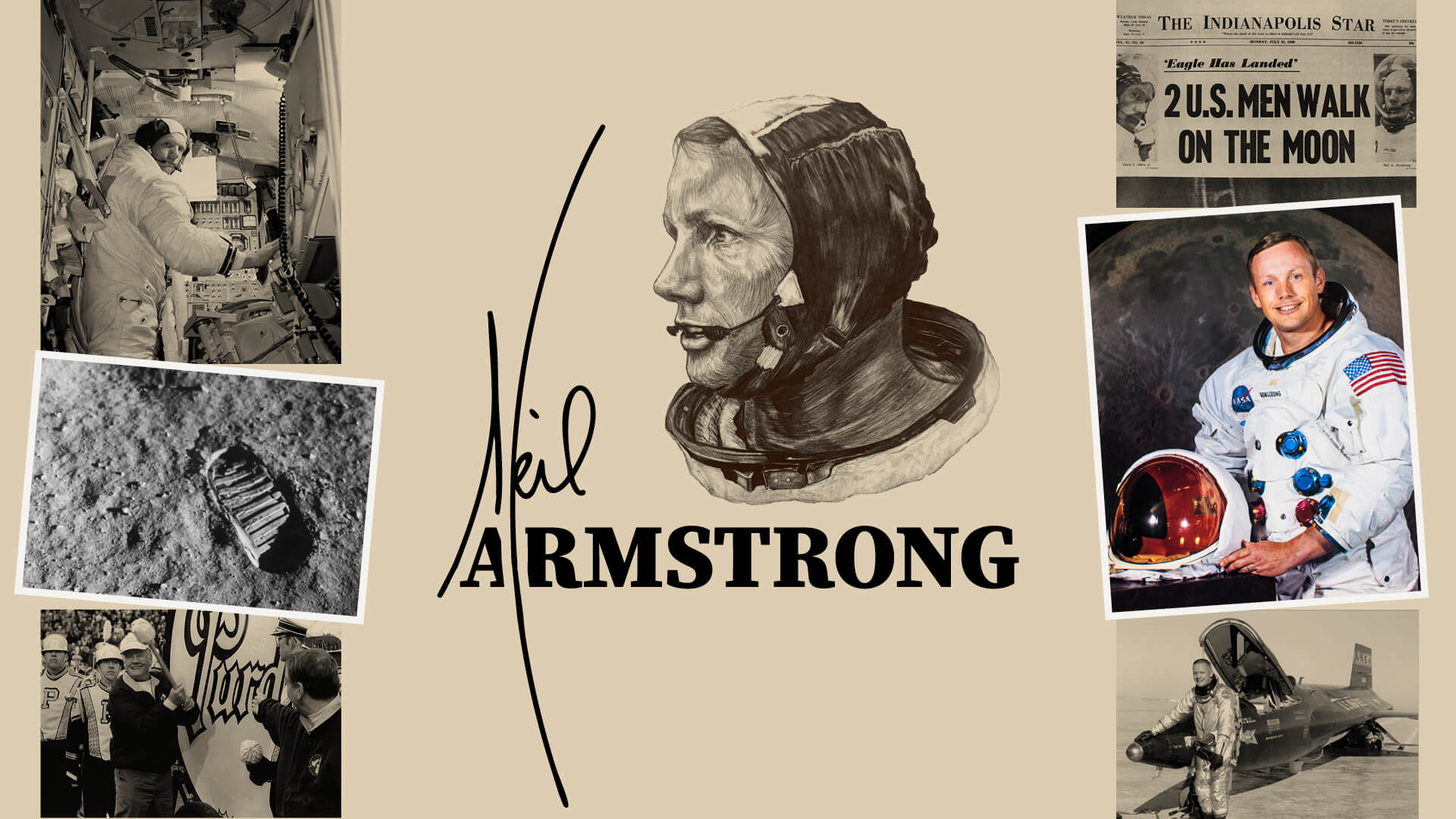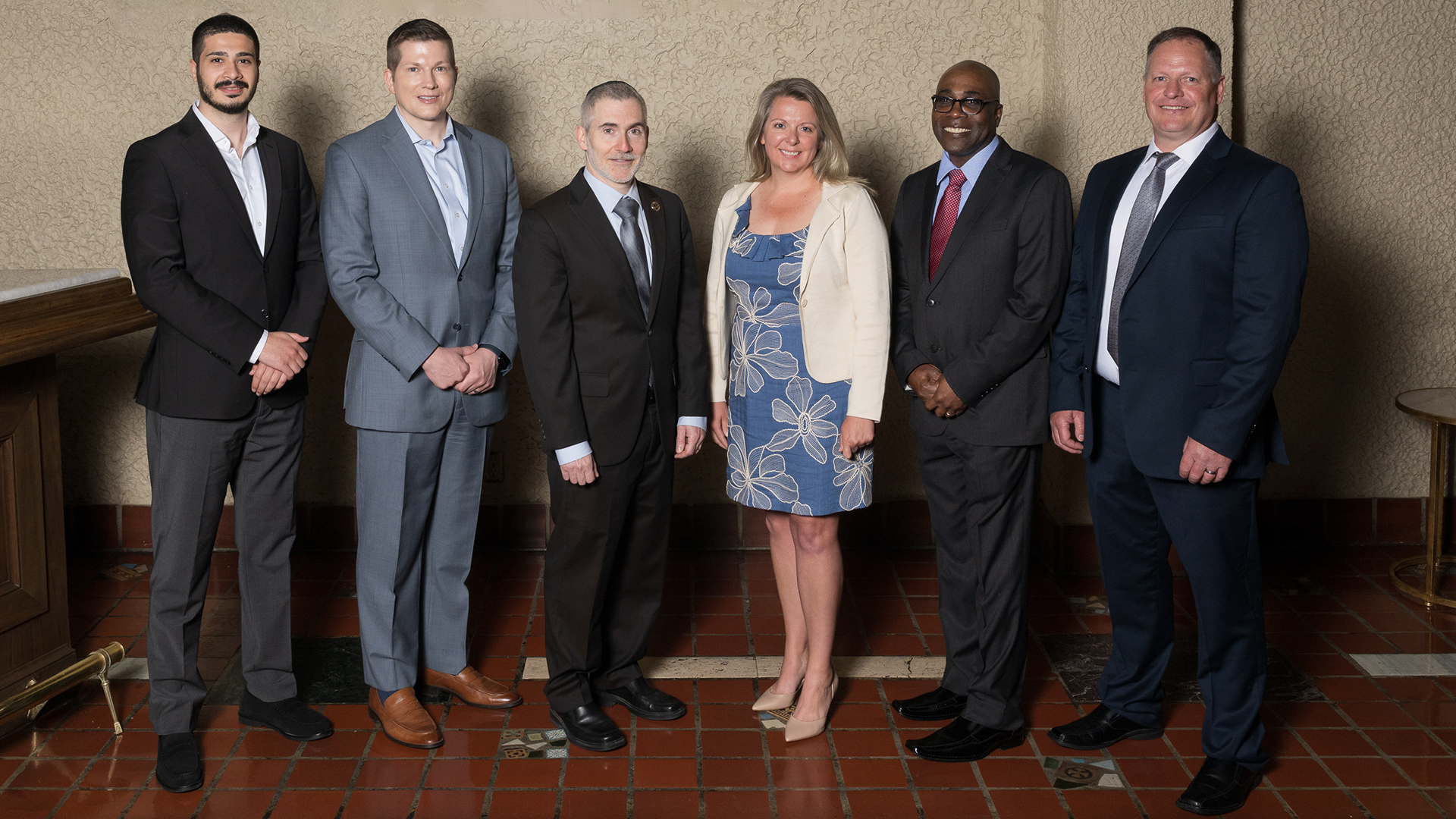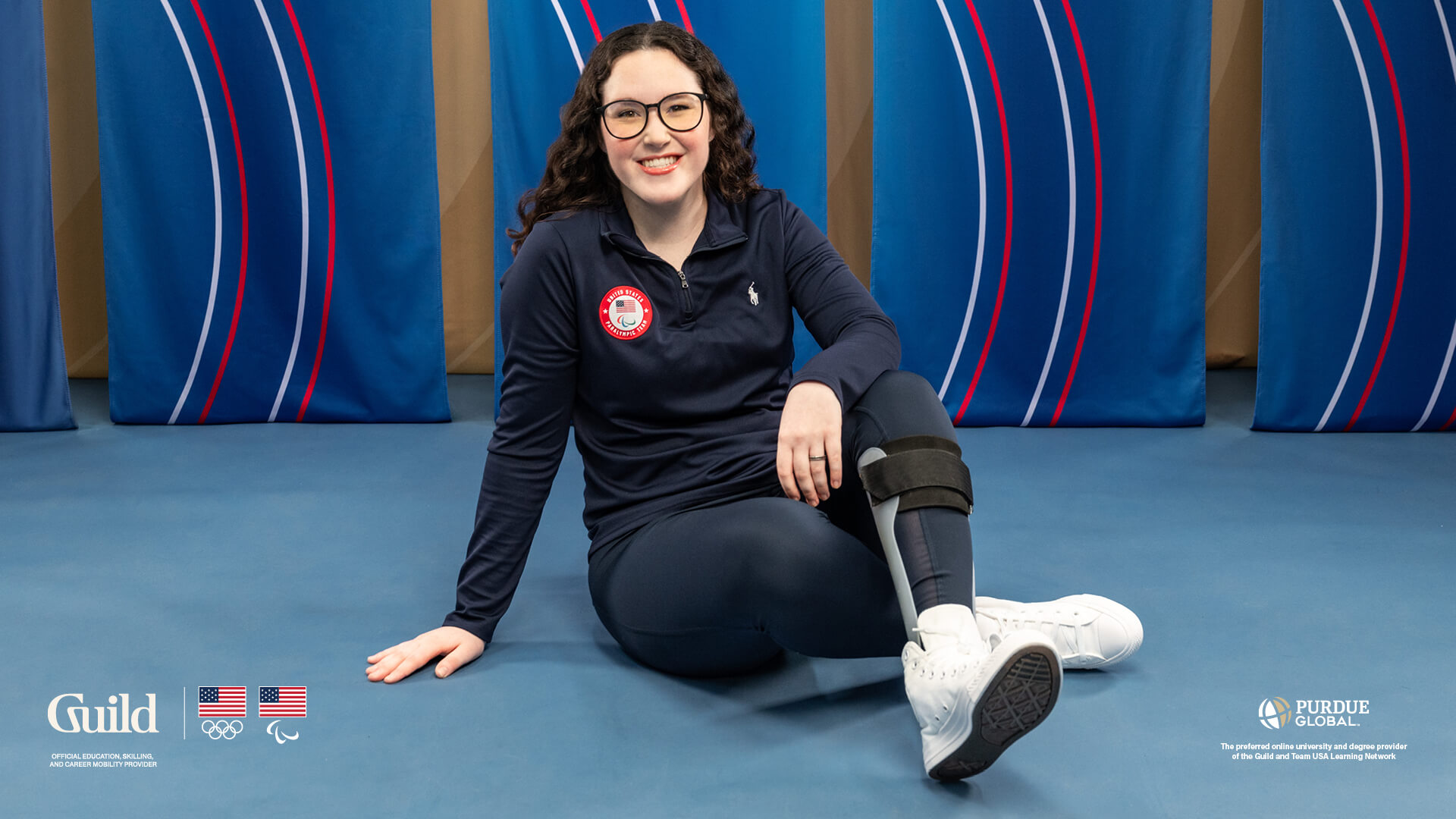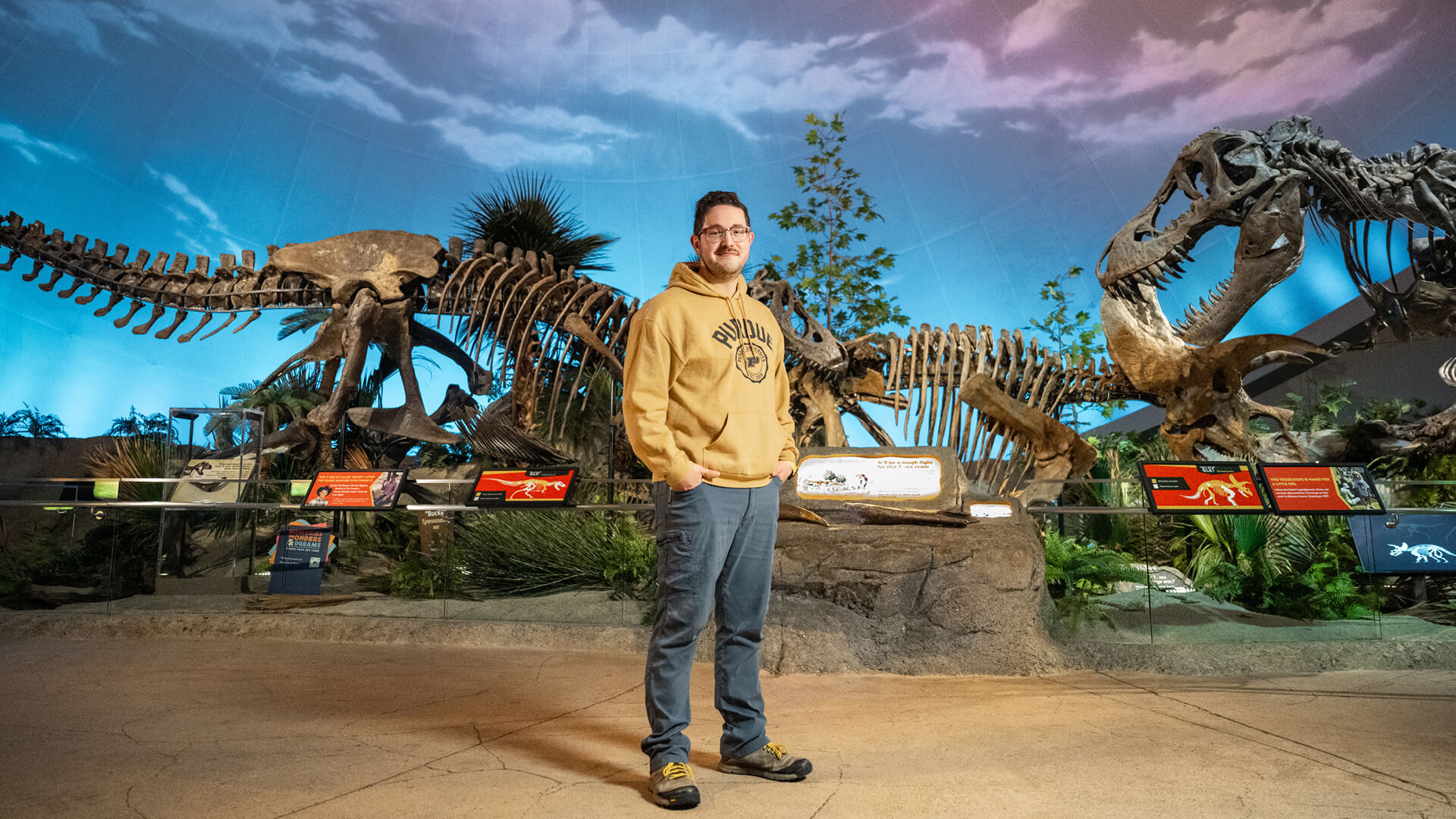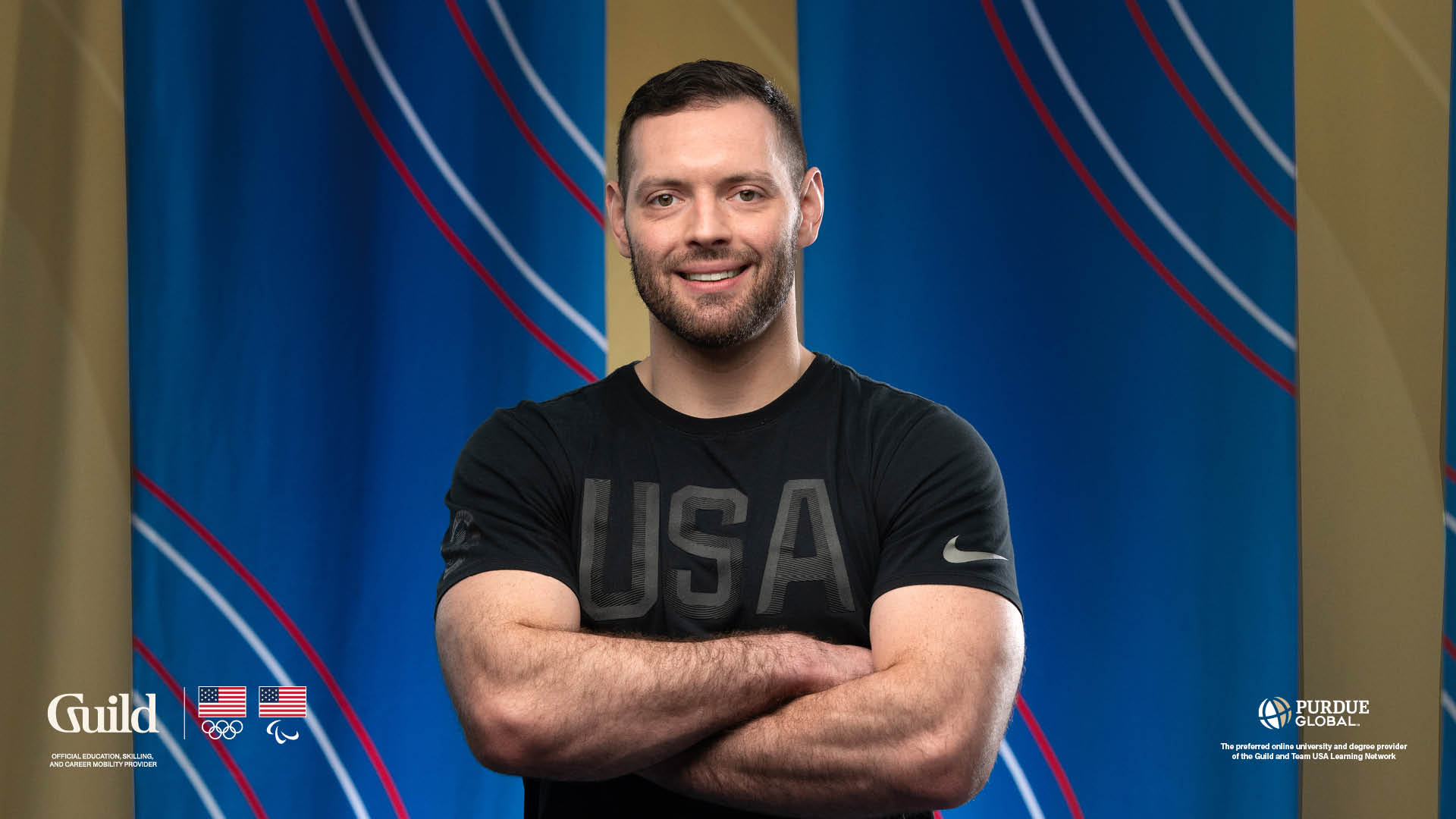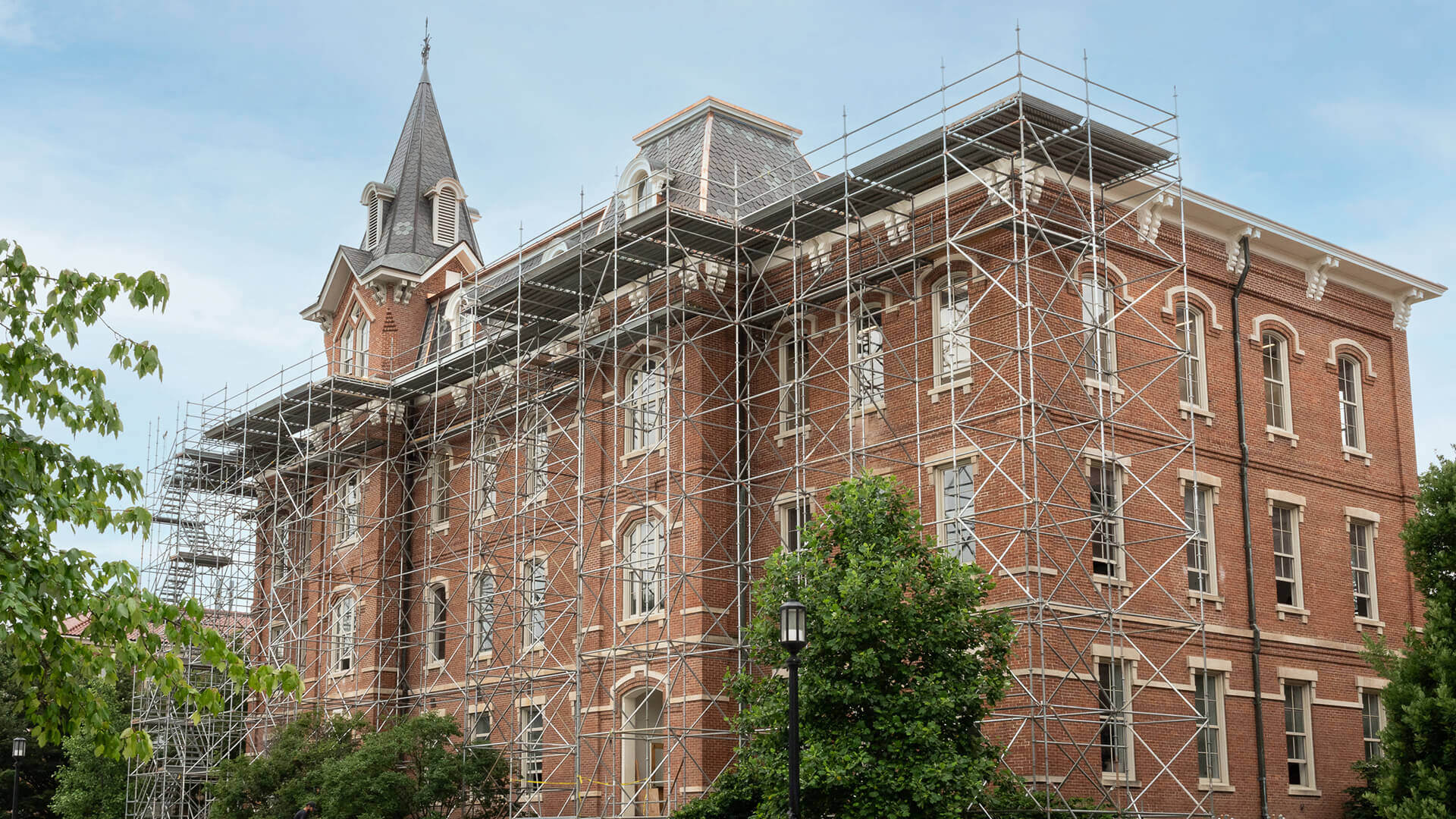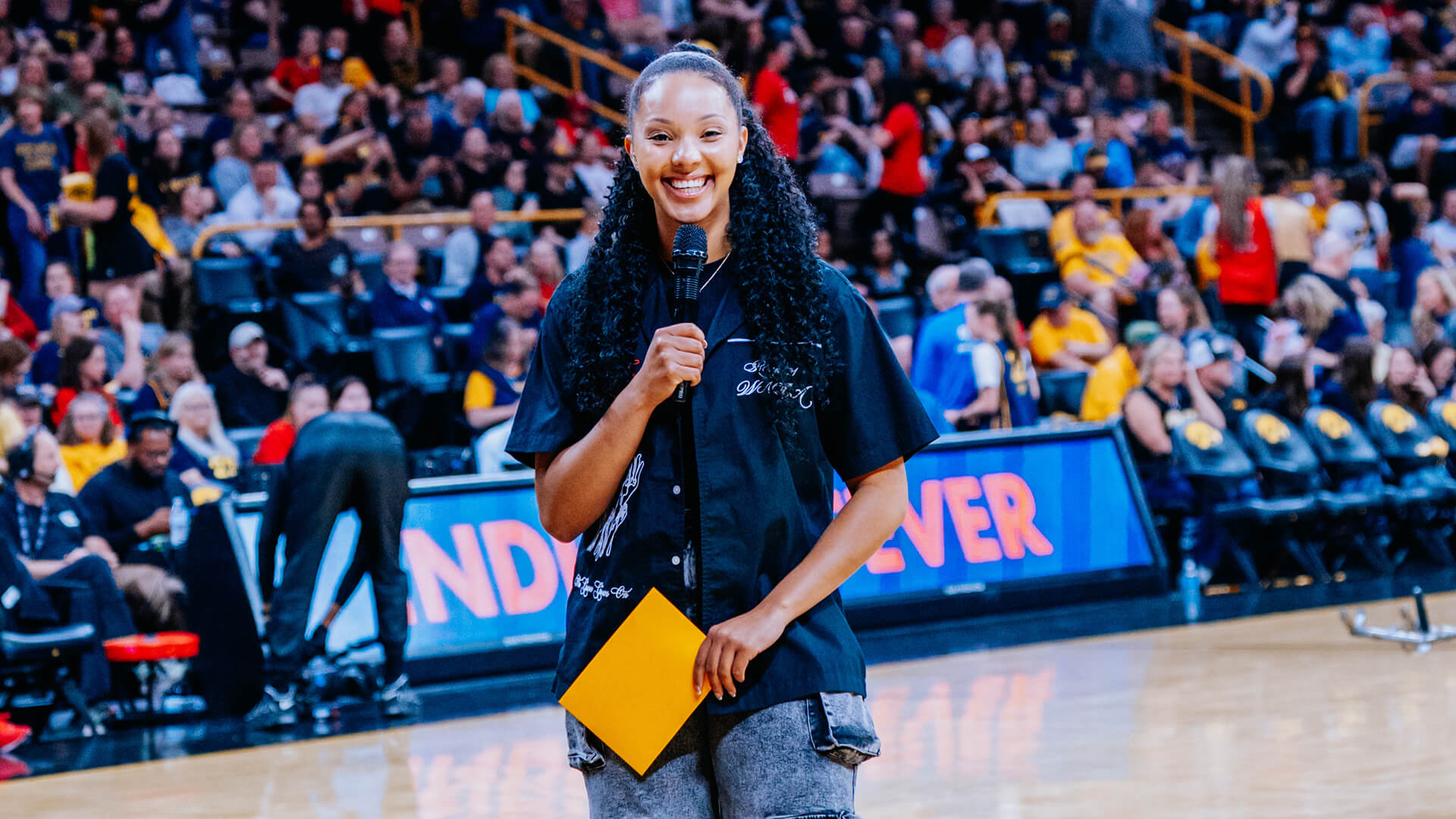Libraries professor builds community with memorable learning experiences
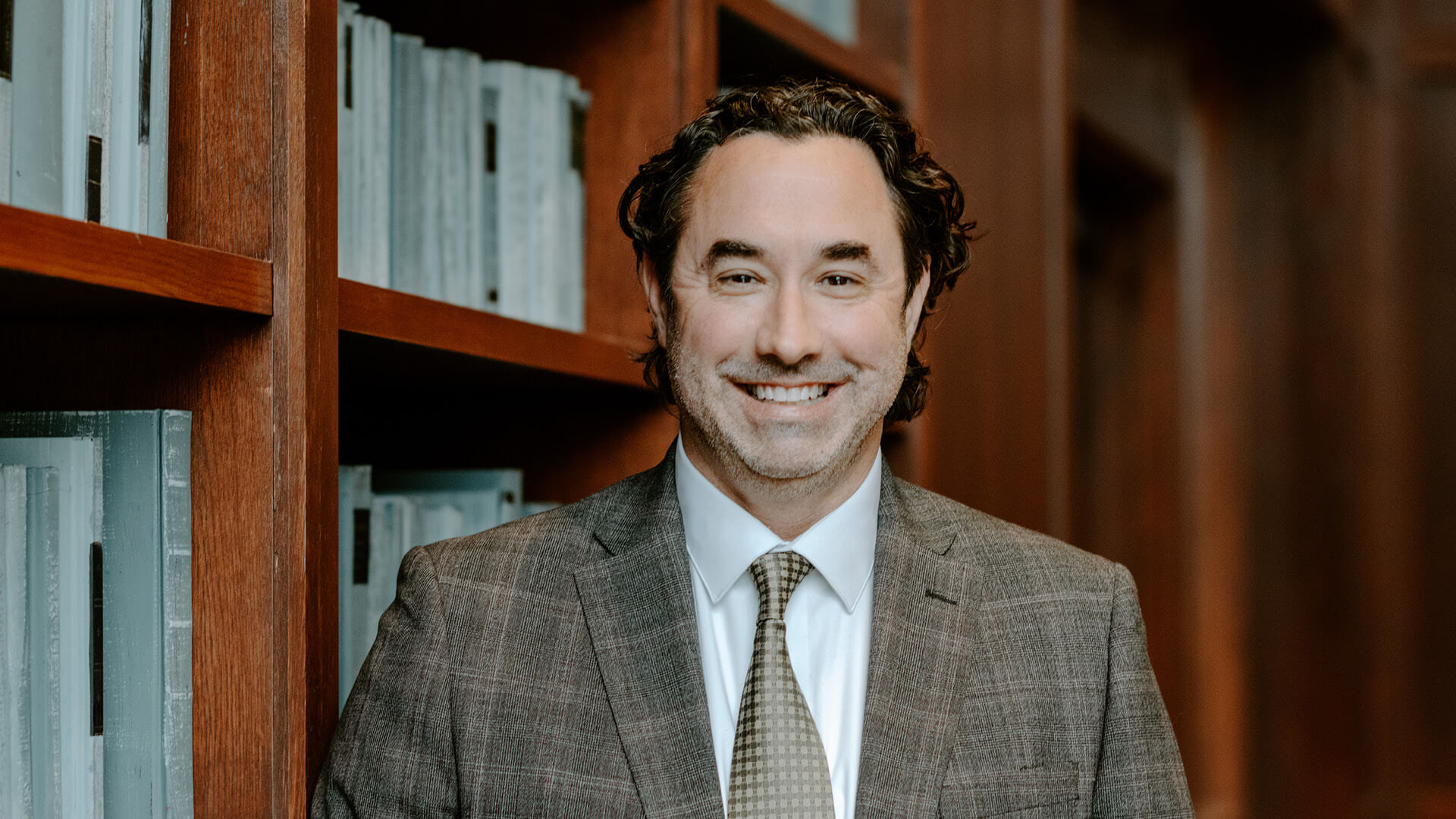
Michael Witt, an associate professor of library science, is a winner of the 2023 Charles B. Murphy Outstanding Undergraduate Teaching Award.
Charles B. Murphy Outstanding Undergraduate Teaching Award: Michael Witt
Michael Witt will do just about anything to create dynamic, immersive experiences for his students.
“The best ideas come from my students,” says Witt, a winner of the 2023 Charles B. Murphy Award for Outstanding Undergraduate Teaching, Purdue’s highest undergraduate teaching honor. “As their professor, I am shameless. I’ll pick up the phone and call anybody to line up opportunities for experiential learning for my students.”
So when a group of his students suggested inviting Purdue men’s basketball coach Matt Painter to give a guest lecture, Witt started knocking on doors in the Birck Athletic Center and made plans to move their next class meeting into the seats of Mackey Arena. When the team finished its practice, Painter came over and talked with Witt’s students about the role of data analytics in the process of recruiting players, scouting opponents and calling plays.
“As a class, we had watched the movie ‘Moneyball,’ which is essentially the application of data science to baseball,” Witt says. “Moving class to the basketball arena and talking with coach Painter and the team’s data analyst really brought the material to life.”
An associate professor of library science, Witt teaches first-year engineering students in two of five courses offered by the Engineering in the World of Data Learning Community. All of his students share an interest in data science, but Witt strives to cultivate that curiosity into enthusiasm – even passion. For him, that starts with grabbing his students’ attention in exciting ways, like kicking off his introduction to Python, a programming language, by partnering with the Columbian Park Zoo, which brings live pythons into his classroom along with data related to their feeding schedules.
“I like to do things that grab my students’ attention and then channel their attention into engagement,” Witt says. “I try to take an active learning approach where students aren’t just listening to me talk through slides as much as they’re discussing and solving problems that are meaningful to them, working with data and writing code that motivates their learning.”
From the library to the classroom
Witt embarked on his Purdue journey more than two decades ago, but he didn’t come to campus as an instructor. Inspired by a past work-study position he’d held at his university’s library as an undergraduate student, Witt veered from his initial information technology career path and took on a role in the Purdue Libraries and School of Information Studies.
A large chunk of his career has been spent building repositories of research data that manage software source code, images and video, archived websites, and outputs from sensors and instruments. Now he gets to share his work – and excitement – with students who take ILS 103 (Introduction to Data Lifecycle Management) and ENG 103 (Computational Methods in Data Science for Engineers).
Through hands-on activities like machine learning March Madness bracket competitions, COVID-19 virus-spread simulations and biweekly big data programming challenges, Witt teaches his students about different types of data used in the practice of engineering, how to manage and manipulate data, and how to use data ethically and responsibly.
Witt often develops out-of-the-box, extracurricular learning experiences for his classes. In 2019, Witt challenged his students to solve what they believed to be a made-up scenario: The Hubble Space Telescope has been hit by debris that has rendered it inoperable. What data will a mission team need to successfully repair the technology? After mulling over the problem, students were divided into teams and, to their surprise, invited to have lunch and pitch their solution to Drew Feustel, a NASA astronaut and Purdue alumnus who conducted that very mission and offered detailed feedback on each presentation.
“My learning community is one of my favorite parts of my job,” Witt says. “Our students are so smart, and they bring such energy from a diverse set of backgrounds to our activities. Watching your students learn and grow is one of the best joys of being a teacher, and you’re able to see so much of it in their first year of college. The engineering program at Purdue is rigorous, and the learning community provides valuable support to help our students succeed. I love getting to know my students, having meaningful interactions with them, and being able to develop relationships that last beyond their time in my class and studies at Purdue.”
I love getting to know my students, having meaningful interactions with them and being able to develop relationships that last beyond their time in my class and studies at Purdue.
Michael Witt
Associate professor, Libraries and School of Information Studies
Building a community
Before Witt was an instructor, he was a University Residences Faculty Fellow – a role he says he’s proudly held in Shreve Hall for nearly two decades. “That’s my place,” he says. “Everyone has a spot on campus that is special to them, and that’s mine.”
Witt has collaborated with Shreve Hall students, staff and resident assistants to plan and execute hundreds of extracurricular programs and activities such as weekly floor dinners, pumpkin carving, paintball, bowling, laser tag, trips to Kings Island and more. In past years, his students in the Shreve Club achieved an unprecedented four-year winning streak for best float in the homecoming parade – floats that he helped construct and tow. For Witt, this is just one of the many opportunities that have shaped his deep appreciation for the university.
“I love Purdue; there’s so much you can do here,” Witt says. “The support and encouragement of colleagues and the collaborative and entrepreneurial nature of this place present opportunities on a weekly basis, whether it’s with students, other faculty and staff, funded research and development, or teaching opportunities. Purdue is a genuinely innovative place. I think there’s an understanding that with innovation comes risk, and with risk comes the possibility of failure. Purdue has an understanding and a tolerance for trying new things that might not be successful and then iterating and experimenting to do them better next time. It’s a part of our culture.”
Thanks to a grant from the Lilly Foundation and Purdue’s Innovation Hub, Witt is currently implementing his own classroom innovation. He aims to create a more real-world learning experience and bring together English, engineering, and data management and analysis through a multimodal assignment that is integrated across three courses in his learning community. He hopes incorporating code and data with technical writing will help his students become better writers and, thus, better engineers.
“It’s a gift to be a part of a student’s experience at Purdue,” he says. “After they graduate, they move on to success in their careers and lives. I want them to leave Purdue with good memories and be able to apply what they’ve learned here to their lives and work.”
Witt’s impact on his students is evident. On the day he was surprised in class with the news of his award, multiple former students were there in person to celebrate with him, a gesture that brings tears to his eyes.
“Purdue Pete burst into my classroom with a boombox, balloons and an entourage of my students, which meant a lot to me” Witt says. “There are many professors who have won the Murphy Award that I’ve looked up to over the years, and this was a surprise to me to be included in their company. I feel humbled and appreciative.”
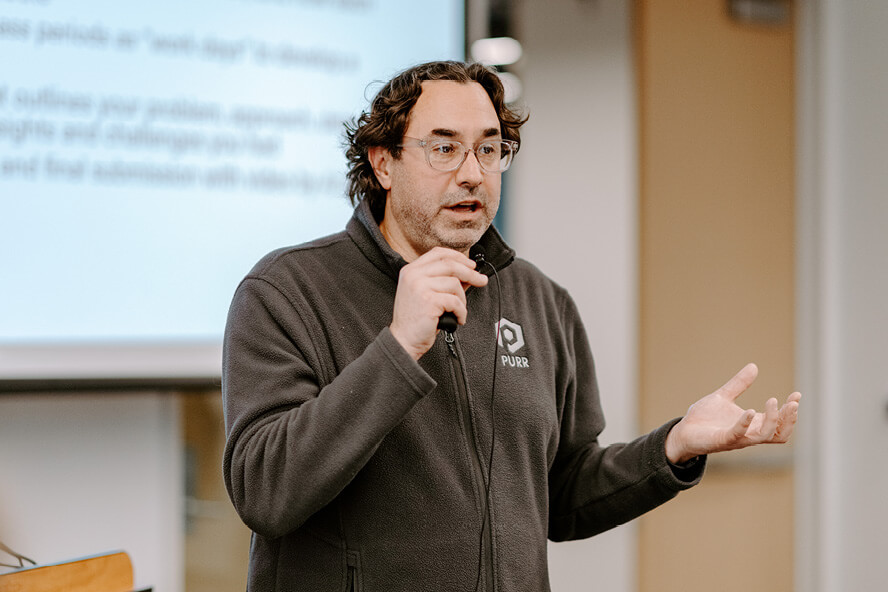
It’s a gift to be a part of a student’s experience at Purdue. After they graduate, they move on to success in their careers and lives. I want them to leave Purdue with good memories and be able to apply what they’ve learned here to their lives and work.
Michael Witt Associate professor, Libraries and School of Information Studies
